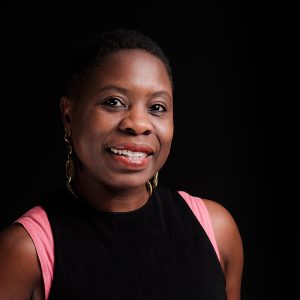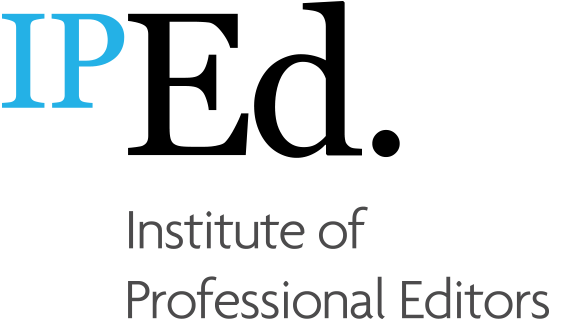From the president
It has been a busy time at Editors Victoria, with a wide range of activities undertaken and in development. And although COVID continues to impact face-to-face gatherings, we’ve held a number of small get-togethers, including some happily scheduled alongside regional writers festivals. Our next gathering will be a Melbourne networking lunch on Wednesday 22 June at the Fitz Café.
As an editor, I always feel a bit torn at writers festivals – the editorial contribution can seem like the elephant in the room, as writers eagerly discuss their writing and published works, but skip over the mysterious steps in between. Yet there are always some gems to take away.
At the recent Bendigo Writers Festival, Sarah Krasnostein extolled the value of a trusted editor who could point out “the boring bits”; Lisa Wilkinson shared fascinating stories of her rapid ascent from Dolly reader, to lowly office all-rounder in a team of long-term publishing professionals, to editor; and Dr Terri Janke outlined the practical steps for respecting Indigenous knowledge and culture from her Twelve tracks, a vital and generous resource for us all. A group of Editors Victoria members and editor friends dissected those and more over an afternoon in Bendigo.
After a quiet start to our training year, you may have noticed Editors Victoria is running workshops on grammar, indexing and ebooks through May and June. Providing members with formal training is one of our core activities, complementing such informal professional development options as speaker events and Zoom cuppas. It’s deeply satisfying to be giving back to the editing community by making these opportunities available.
If professional development (PD) is a particular interest of yours, we’d love to hear from you, as we currently need to build up our PD subcommittee. Helping select, organise and run training workshops is such a meaningful way to contribute. Get in touch with Jane Fitzpatrick at edvic.profdev@iped-editors.org if you’d like to find out more.
This month we welcome a new admin officer to the branch, in Jake Egan. Jake is a branch member, writer and editing student with a depth of business and admin experience. We look forward to working with him over the coming months. One of Jake’s first jobs was to put together our brief member survey. If you’ve not returned yours yet, please consider doing so. It’s quick for you, and very useful for us!
Looking further ahead, we have an exciting guest for our Annual Branch Meeting (ABM) on 14 July, in Alice Pung. Alice is a celebrated author and highly regarded speaker who has published across multiple genres, as well as editing the Growing up Asian in Australia anthology. Pencil it in! This is a free event for branch members who join us for the preceding formalities of the ABM.
And finally, if you’re looking for study buddies, or a Zoom study space, to help prepare for the accreditation exam, drop me a line at edvic.president@iped-editors.org and we’ll see if we can help.
Happy editing!
Stephanie
By Stephanie Holt AE (edvic.president@iped-editors.org)
New members
This month EdVic is pleased to welcome our new associate member, Jo-Anne King, and two new student members, Rebecca Andersen and Caitlyn Bardsley. We look forward to seeing you at our workshops and events and encourage you to make the most of IPEd’s networks for news and support.
New member profile: Cai Bardsley
Q: How long have you been an editor and how did your career begin?
Photo credit: Scout Tester
Q: What type of editing makes up most of your work?
A: I’m particularly interested in copyediting. I love getting right down into the text on a word-by-word level and tinkering with the inner workings of a sentence.
Q: What aspect of the profession do you find most challenging?
A: At this stage the biggest challenge is just getting started professionally; getting started and having the confidence to put yourself out there and trust yourself to go for that first job.
Q: How would you like to build your skills as an editor?
A: I just want to try and participate in the editing space as much as possible. Taking opportunities when they come and delving into learning about different areas and types of editing that I may not be comfortable with yet are ways I plan to broaden my skills. I would love to end up editing fiction ultimately.
Q: Now you’re a member, what are you looking forward to?
A: The access to more learning resources and the amazing range of events and webinars that are available and, eventually, to be able to sit the accreditation exam and become an Accredited Editor.
Professional development news
Grammar in a nutshell
On 6 and 13 May, a class of keen editors joined grammar gurus Elizabeth Manning Murphy DE and Ted Briggs AE for a workshop on grammar.
In two afternoons, it was impossible to cover every aspect of English grammar, but an excellent and practical selection of topics for working editors was included.
Elizabeth and Ted provided a thorough overview of the parts of speech and how groups of words can be classified into clauses, phrases and various types of sentences. Their approach acknowledged that English is always changing and the standards to be used depend on the writing context.
Elizabeth provided many useful tips to analyse common grammar errors and to equip editors with the language to explain errors to authors.
Participants worked through exercises that enabled them to test and improve their new-found grammar skills.
The course was rounded out with helpful guidance on the subjects of parallel structure and common punctuation errors.
For the many editors who did not receive a thorough grounding in grammar in their education, this was an immensely valuable course. Elizabeth and Ted’s encouraging and clear manner made it easy for attendees to ask questions and clarify misunderstandings.
Grammar in a nutshell will be repeated at the end of June but is already fully booked. It is possible that this valuable course will be repeated in the future. To express your interest, please email secretary@iped-editors.org.
Indexing: adding to the editor’s skillset, with Max McMaster (sold out)
As the deadline for this newsletter approaches, this sold-out new course is about to be run. See the July newsletter for a report.
An introduction to ebook editing, with Sarah JH Fletcher (sold out)
This exciting new course will run on Saturday 4 June and Wednesday 8 June. If you missed out but would like to undertake this course in the future, let us know.
Seeking fresh blood
At the end of this committee’s term in July, I will be stepping down as Professional Development Officer. If you are interested in professional development and would like to contribute in any way to the program Editors Victoria runs, please contact me with any questions at edvic.profdev@iped-editors.org. These things work best when several people get involved. Plans are now being made towards the next year of courses, so step up, do your bit and have your say!
By Jane Fitzpatrick, Professional Development Officer (edvic.profdev@iped-editors.org)
Upcoming June speaker event – Seduce the writing: the editor as mentor, with Dr Eugen Bacon
Description
Editing is not just about fixing, it is about enhancing.
Internationally acclaimed author and editor Eugen Bacon offers deep insights as an editor who is also a writer.
This session will look at the role of an editor – not that of a grumpy nanny, trying to instil manners into the ugly little thing, but rather that of a mentor, one who helps the author to think deeper, write richer.
Editing is a relationship of trust between the author and the editor, an experience of mutuality that helps bring out the work to its best form, without dislocating the author’s voice.
The session will cover approaches that guide a client to creative expression by:
- hooking the audience
- saying more with less
- adding texture to the writing
- saying it powerfully
- saying it beautifully.
Presenter
 Dr Eugen M. Bacon (MA, MSc, PhD), an African Australian, is a computer scientist who has mentally re-engineered herself into creative writing. She is a writer, scholar and editor. Her books Ivory’s story, Danged black thing and Saving shadows are finalists in the British Science Fiction Association (BSFA) Awards. She was announced in the honours list of the 2022 Otherwise Fellowships for her work in gender and speculative fiction. She has won, been longlisted or commended in international awards including the Foreword Indies, Bridport Prize, Copyright Agency Prize, Horror Writers Association Diversity Grant, Otherwise, Rhysling, Australian Shadows, Ditmar Awards and Nommo Awards for Speculative Fiction by Africans. Bacon’s creative work has appeared in literary and speculative fiction publications worldwide, including Award winning Australian writing, British Science Fiction Association’s Vector magazine, Fantasy Magazine, The Magazine of Fantasy & Science Fiction, with Bloomsbury Publishing and The year’s best African speculative fiction. New release: Mage of fools (Afro-futuristic dystopian novel). Website: eugenbacon.com / Twitter: @EugenBacon
Dr Eugen M. Bacon (MA, MSc, PhD), an African Australian, is a computer scientist who has mentally re-engineered herself into creative writing. She is a writer, scholar and editor. Her books Ivory’s story, Danged black thing and Saving shadows are finalists in the British Science Fiction Association (BSFA) Awards. She was announced in the honours list of the 2022 Otherwise Fellowships for her work in gender and speculative fiction. She has won, been longlisted or commended in international awards including the Foreword Indies, Bridport Prize, Copyright Agency Prize, Horror Writers Association Diversity Grant, Otherwise, Rhysling, Australian Shadows, Ditmar Awards and Nommo Awards for Speculative Fiction by Africans. Bacon’s creative work has appeared in literary and speculative fiction publications worldwide, including Award winning Australian writing, British Science Fiction Association’s Vector magazine, Fantasy Magazine, The Magazine of Fantasy & Science Fiction, with Bloomsbury Publishing and The year’s best African speculative fiction. New release: Mage of fools (Afro-futuristic dystopian novel). Website: eugenbacon.com / Twitter: @EugenBacon
Details
Date: Thursday 23 June 2022
Time: 6.00 to 7.00 pm AEST
Venue: online via Zoom meetings
Cost: IPEd members and reciprocal organisations – 10 AUD, non-members 15 AUD
Book: here

The Institute of Professional Editors Limited (IPEd) is the professional association for Australian and New Zealand editors.
News
We acknowledge and pay our respects to Aboriginal and Torres Strait Islander peoples as Traditional Owners, Custodians of Country and First Nations in Australia, and to Māori as tangata whenua and te Tiriti o Waitangi partners in Aotearoa New Zealand.
